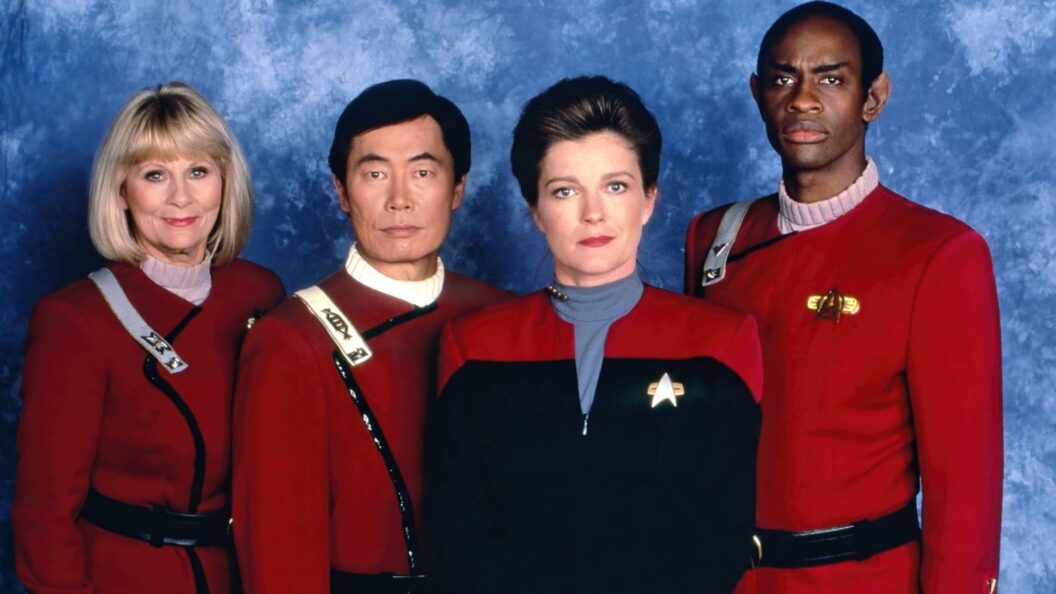The Cult of Canceled Sci-Fi: Revisiting Underrated Shows
In an age of binge-watching and streaming platforms, the power of critical reviews is often placed under scrutiny. Notably, platforms like Rotten Tomatoes can shape public perception, yet they don’t always dictate what resonates with audiences. This article highlights several science fiction television series that, despite their mediocre scores, have managed to capture the hearts of viewers, presenting a case for their reappraisal.
Critics vs. Audiences: The Discrepancy
Rotten Tomatoes aggregates reviews from certified critics and calculates a percentage of "fresh" ratings. However, this binary system often overlooks the nuanced connection between audiences and their favorite shows. Over the years, many sci-fi series have defied critics’ expectations, achieving cult status despite receiving scores below 80% on Rotten Tomatoes.
These series, showcasing a mix of compelling narratives, strong performances, and quirky originality, deserve a deeper appreciation. Here’s a look at seven notable examples of underrated sci-fi shows, ranked by their rewatchability.
1. Star Trek: Voyager (1995–2001)
Rotten Tomatoes Score: 77%
Star Trek: Voyager remains one of the most beloved entries in the iconic franchise, yet it often finds itself overshadowed by its predecessors. Following the crew of the starship Voyager, lost in an uncharted part of space, the series introduced Captain Janeway, the first female captain in Star Trek history. Despite criticisms calling it dull, fans appreciate its innovative storylines and character development, proving its lasting appeal.
2. V (1983)
Rotten Tomatoes Score: 58%
Starting as a two-part miniseries, V explores the arrival of aliens on Earth with ulterior motives. While critics lambasted its portrayal of totalitarian themes, audiences resonated with its depth and suspense. The stark difference between the 58% critic score and the higher audience reviews speaks volumes, encouraging a reevaluation of its influential legacy.
3. The Orville (2017–2022)
Rotten Tomatoes Score: 77%
Created by Seth MacFarlane, The Orville is often mistaken for a mere parody of Star Trek but instead stands as a heartfelt homage to the genre. Critics initially dismissed its first season, yet fans lauded its character-driven storytelling. The series combines humor with deep emotional beats, making it a standout in contemporary sci-fi.
4. The Peripheral (2022)
Rotten Tomatoes Score: 79%
Based on William Gibson’s novel, The Peripheral dives into alternate realities and technology. Starring Chloë Grace Moretz, it garnered praise for its originality but was criticized for pacing issues. Unfortunately, it was canceled after one season, leaving fans yearning for a conclusion to its complex tale.
5. Almost Human (2013–2014)
Rotten Tomatoes Score: 69%
Renowned for his performance in The Boys, Karl Urban shines in Almost Human, a series about a human cop partnered with an android. Critics found the concept familiar, yet audiences enjoyed its emotional depth. The show was ultimately canceled, but its commitment to character development makes it a worthy rewatch.
6. Night Sky (2022)
Rotten Tomatoes Score: 75%
Featuring Sissy Spacek and J.K. Simmons, Night Sky revolves around a couple with access to a mysterious chamber leading to another planet. Although only airing for one season due to viewership struggles, fans praised its rich world-building and the emotional gravity of its narrative.
7. Planet of the Apes (1974)
Rotten Tomatoes Score: 55%
This television adaptation follows two astronauts and a chimp in a dystopian future ruled by apes. Canceled after only half a season, it has since developed a devoted fanbase. Critics dismissed its depth, but audiences appreciate the series for its allegorical storytelling and nostalgic charm.
Significance and Conclusion
These shows represent just a fraction of the sci-fi genre’s rich tapestry. Despite critical disdain, they have become essential parts of fan culture. Audiences often engage with these narratives differently than critics, leading to a passionate discourse about what constitutes quality television.
As the landscape of media continues to evolve, recognizing these underrated gems becomes increasingly essential. The legacy of shows like Star Trek: Voyager and V proves that impactful storytelling often transcends superficial ratings, ultimately shaping the future of the genre and how we understand the stories that resonate with us.
This ongoing dialogue reminds us to remain open-minded, exploring narratives beyond the confines of critical reviews, thereby enriching our viewing experience.









